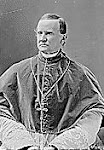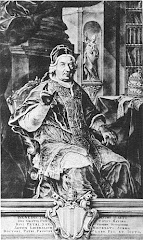Lent: A Time For Sobriety, Reflection
By John Rossomando, The Bulletin
Although Ash Wednesday marks the beginning of Lent for Roman Catholics and liturgically observant Protestants, it will have already begun Monday for the area’s Eastern Catholics and Armenian Orthodox Christians.For Eastern Christians, both Catholic and Orthodox, Lent provides a time for personal humility and renunciation in preparation for Easter. Lent serves as a 40-period commemorating the 40 days Jesus spent in the desert following his baptism and prior to his beginning his official ministry.
However, unlike modern Roman Catholic practice, Eastern Catholics and their Eastern Orthodox counterparts customarily fast from not only meat, but also dairy, fish and eggs throughout Lent.
“Fasting is about denying self,” said Fr. James Badeaux, pastor of St. Michael the Archangel Byzantine Catholic Church in Mont Clare. “Abstaining from meat and dairy makes us aware physically, and our hunger puts our minds on spiritual things.”
Traditionally, Eastern Catholics and Eastern Orthodox begin a gradual transition into Lent by beginning to abstain from meat the Sunday prior to the beginning of Lent, known as Meatfare, and the fast from dairy products begins on Cheesefare Sunday, which marks the beginning of Lent.
Byzantine Catholic and Eastern Orthodox monks and nuns traditionally abstain from all food and drink until after Evening Prayer, which occurs around dusk.
Roman Catholics formerly adhered to a similar custom from antiquity as is reflected in a 6th century letter between Pope St. Gregory the Great and St. Augustine, the first Archbishop of Canterbury, which calls for abstention from meat, dairy and eggs. But this gradually fell into disuse over the centuries as the popes and bishops gradually relaxed the practice of abstaining from eggs and dairy products until it was formally abolished in 1910. They were also subsequently further relaxed under Popes Pius XII and Paul VI.
Roman Catholic and Protestant customs such as making Shrove Tuesday pancakes and coloring eggs for Easter are vestiges of the days when all Christians abstained from eggs and dairy products during Lent. Pancakes were originally made to use up the last of the eggs and dairy products before the start of the Lenten fast, and eggs were blessed at Easter because they were abstained from during Lent.
In the Byzantine tradition observed by Byzantine Catholics and the Eastern Orthodox, Lent begins with a service known as Forgiveness Vespers where the faithful ask God and each other to forgive their sins. The focus of Lent differs markedly from the Western tradition, which focuses on Jesus’ passion and suffering throughout the season.
Instead, the first three weeks of Lent focus liturgically on personal repentance and redemption.
“We have the theme of repentance and a return to our home, which is heaven,” Fr. Badeaux said. “In the first part of the Great Fast we read from Genesis in the Divine Office, reflecting us standing at the gates of Eden to see what has been lost.”
Each Lenten Sunday celebrates a different theme beginning with the Sunday of Orthodoxy on the first full Sunday in Lent. This Sunday commemorates the restoration of the Holy Icons following the Second Council of Nicea in A.D. 787, which in turn reaffirms the orthodox Christian dogma of God’s incarnation in Jesus.
The congregation customarily celebrates this Sunday with a procession of the icons and a service of the anathemas during Matins that reaffirms what the Church believes against its enemies.
The second Sunday of Lent commemorates the Christian martyrs such as St. Polycarp, a Second Century bishop who was martyred by the Romans, in some Byzantine Catholic dioceses. However, some dioceses follow the Eastern Orthodox custom of commemorating St. Gregory Palamas, a 14th century Greek Orthodox bishop who holds a place akin to St. Thomas Aquinas in Byzantine theology.
“The third Sunday of the Holy Cross is the first time we focus on the suffering of Jesus,” Fr. Badeaux said. “The fourth Sunday commemorates St. John Climacus who wrote about going up each wrung of the virtues, and the fifth Sunday commemorates St. Mary of Egypt, a reformed prostitute.”
Byzantine Catholics, like the Orthodox, do not celebrate the Divine Liturgy (Mass) during Lenten weekdays because Lent is considered so sacred that even the Eucharist is fasted from, save for the Liturgy of the Presanctified Gifts. This liturgy constitutes evening prayer with a communion service using leavened hosts from the prior Sunday’s liturgy.
Lent in the Byzantine tradition, unlike in the Western, doesn’t count Holy Week as part of Lent; consequently, Lent ends the Friday before Holy Week. Also unlike in the West, Sundays are counted as part of Lent.
“Holy Great Week is a separate period, and we don’t have the Triduum,” Fr. Badeaux said. “We celebrate Lazarus Saturday as foretelling the resurrection of the Lord, which is also separate.”
In the Syriac traditions observed by local Maronites, who originate in Lebanon, Lent begins with what is known as Ash Monday, which is preceded on Sunday night with an evening service. Both groups follow ancient traditions dating back to the earliest days of Christianity.
“We start Lent on Monday, and we adopted Ash Monday from the Latin tradition, which was brought to us by missionaries,” said Fr. Paul Mouwad, pastor of St. Sharbel Maronite Catholic Church in Newtown Square. “Ash Monday is there to remind [the people] that they are dust, and we sacrifice by fasting from meat for 50 days starting on Sunday.”
The Maronites refer to this Sunday as the Sunday of Cana of Galilee, which commemorates the Wedding at Cana, a great feast before the fast. It marks the last time Maronites customarily are allowed to eat between midnight and noon until Easter, and only water is allowed during that time. This rule, however, has been somewhat relaxed for American Maronites, who more often observe a stricter fast on Wednesdays and Fridays.
Each successive Sunday commemorates a different miracle the Bible says Christ performed such as changing wine into water, healing the blind man and healing the paralytic. Fr. Mouwad’s parish celebrates Mass on Friday nights with the Stations of the Cross, which is borrowed from the Latin tradition. It also is customary for the Maronites to celebrate Morning and Evening prayer every day during Lent.
The Eastern Orthodox and those Eastern Catholics who use the Julian Calendar to calculate the date of Pascha will begin their Lenten observances on March 1.


























No comments:
Post a Comment